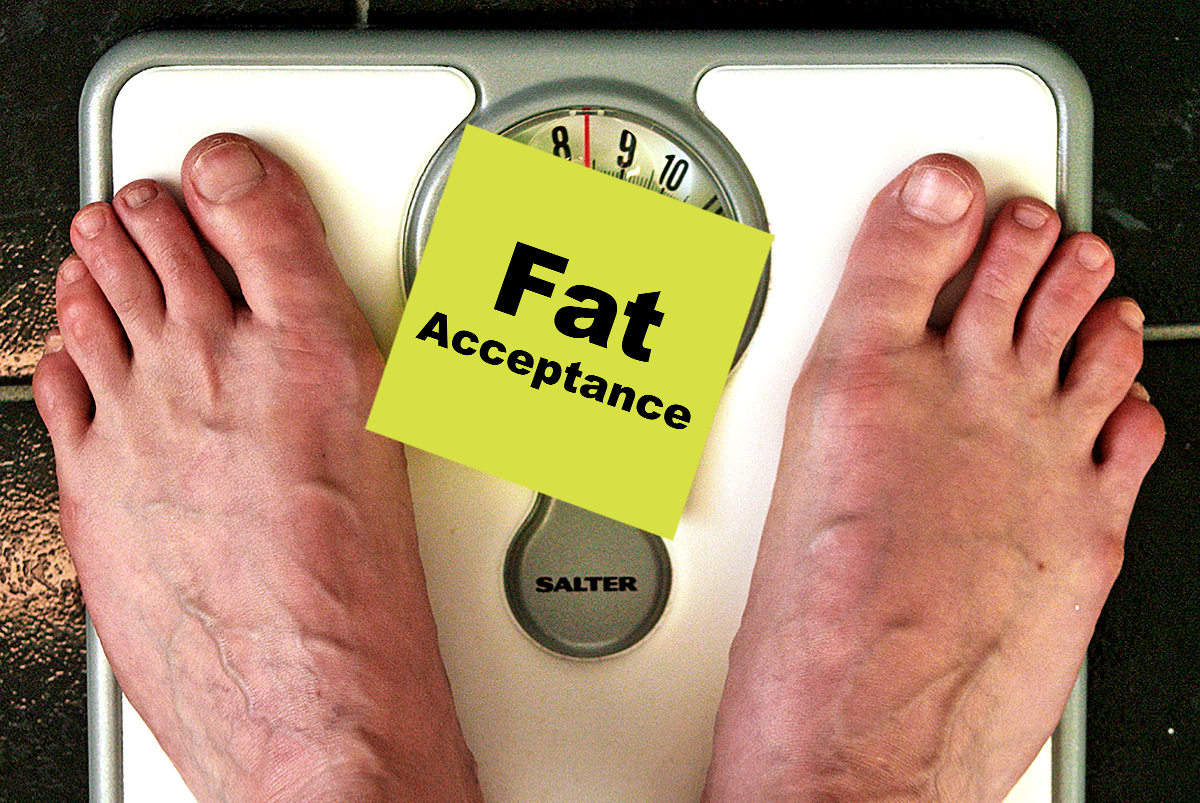Dennis Bayazitov | Assistant News Editor
Featured image: Did you really think social responsibility and health-actualization were anything more than superfluous? | Courtesy of Alan Cleaver, with edits from Basma Elbahnasawy
Never has there been a more opportune, rational, and necessary shift in ideals to hit society than the fat acceptance movement.
Ever since first blooming in the ‘60s—but truly taking off in the past several years across social media—fat acceptance has continued to grow in numbers and influence, offering once-self-conscious, but now happily-reassured, abundant gastronomes comfort worldwide that their potentially self-destructive health habits are justified.
Think about it—why should someone ever feel the instinct to put in hard work to address their body’s physical needs? Why strive to promote higher-quality health standards on a societal scale—to perhaps even inspire the same motivation in others who could use it—when instead, everyone can simply demand the whole world affirm that the obese are, in fact, beautiful and healthy as they are right now?
Never fear—fat acceptance is here to validate our life choices.
“The way we see it, this movement isn’t denying that obesity is a problem—it is just choosing not to focus on it. Instead, it prioritizes the well-being of individuals affected by fat-shaming and other ways of targeting and attacking fat people,” wrote Matea Paveskovic in Odyssey Magazine on the conversation.
Understand that when those around you do affirm the classified-overweight or -obese are healthy, they are being progressive. In that moment, they are compassionate, caring human beings. If they do not, however, then clearly they are vain and hopelessly obsessed with their own physical aesthetics—time and again seduced by the pressures to fit in, and the baloney of pursuing perceived fulfillment through fitness.
As it turns out, the various direct medical costs, productivity costs, transportation costs, and human capital costs that cause many working members in society financial strain, do actually exist. Nevertheless, for the sake of compassion towards those responsible, for the time being—however long that might take—it is probably best not to confront the root causes of such overspending.
“Relative medical spending for the obese may be as much as 100 per cent higher than for healthy weight adults, and nationwide ‘excess’ medical spending may amount to as much as $147 billion annually in the U.S. for adults, and $14.3 billion annually for children,” reported Ross Hammond and Ruth Levine in their study, The economic impact of obesity in the United States.
Despite popular opinion, science, and dictionaries, it is actually very possible to be both overweight and fit.
“There is no ‘normal’ size,” wrote Krystal Marx in the Huffington Post. “There is healthy, there is able, there is what we’re born with, what we choose to make of it, how we choose to form it, how we take care of it (inside and out)… and the knowledge that, no matter how good you treat yourself and how much care you show your body, someone will always tell youthat you’re doing it wrong.”
What—others don’t agree with your inspiring attitude? Of course they don’t. They are haters, after all. They are fat shamers—which, yes, is exactly what they’re doing every time they speculate the overweight might not be as healthy as they claim, injudiciously contemplating the broader social implications.
“I don’t want to take on any specific organization—but a social movement that would suggest healthy at any size in many respects can be misleading,” said Barry Franklin, PhD, director of the Cardiac Rehab Program and Exercise Laboratories at William Beaumont Hospital in Royal Oak, Michigan.
“We can’t say that every overweight person is healthy.”
Nonsense. Sure we can.
For never before has humankind encountered such a brilliant, clean workaround to one of its most intractable—and apparently far simpler to solve—epidemics yet.
“Obesity is the single greatest public health problem we face in the U.S. today, and is now spreading beyond the developed world into developing countries,” said Stephen Nicholls, MD, clinical director of the Cleveland Clinic Center for Cardiovascular Diagnostics and Prevention.
But don’t be confused, person who might still—for whatever reason—be taking their health seriously (and possibly even considering the ramifications of doing so for the rest of their immediate community).
The real issue here is not one of having high self-esteem, nor is it about feeling whole and accepted. It is not about feeling beautiful and appreciated at any physical size, with any apparent superficial defect, blemish, or imperfection—as everyone rightfully deserves to.
While such values certainly address the symptomatic, they do not address the root cause of this social problem—which is: everyone who makes you feel defensive needs to stop audaciously suggesting you take responsibility and think about your role in promoting a healthier society. Instead, literally everyone should change in order to make you feel good now.



